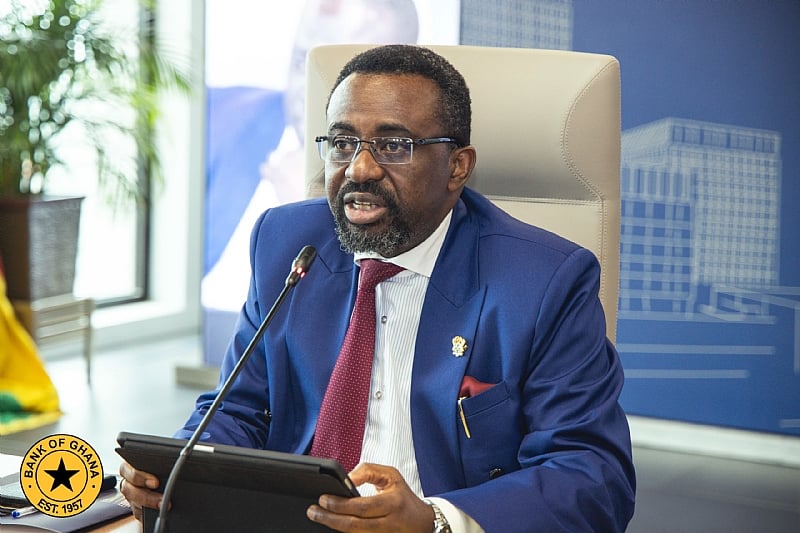Governor of the Bank of Ghana, Dr. Johnson Pandit Asiama, has assured the business community and investors that there is no looming shortage of US dollars in the banking system, despite recent concerns over reduced foreign exchange availability.
He stated that the Central Bank is actively strengthening oversight to ensure the efficient flow of foreign exchange into the country’s financial system.
Addressing the media at the 125th Monetary Policy Committee (MPC) press briefing held in Accra on Wednesday, July 30, Dr. Asiama acknowledged a drop in remittance inflows since April 2025, but dismissed suggestions that this had led to a systemic dollar scarcity. He attributed some delays in foreign exchange transactions to inadequate documentation from certain importers.
“We do not expect a shortage of Dollars at the bank. There have been instances like that, and we moved in to investigate, only to find out that some of those importers did not have the appropriate documentation and that was what was delaying it,” he said.
He added that the Central Bank was intensifying its scrutiny of remittance channels and forex inflows to address the reduction in foreign exchange inflows.
“What we’ve seen is that certain inflows appear to have reduced, especially remittances since April – we’re investigating that thoroughly,” the Governor noted, adding that enhanced monitoring was already being implemented to boost inflows and curb bottlenecks in the system.
Dr. Asiama disclosed that on Tuesday, July 29, the BoG issued a directive to banks, Payment and Remittance Service Providers (PRSPs), and Money Transfer Operators (MTOs), requiring them to channel foreign exchange properly through the financial system. He added that the Central Bank was also collecting additional data from key players in the remittance space to ensure greater transparency.
“… and whatever pressures you might be seeing locally will be contained,” he assured.
In a significant regulatory move, the Governor announced tighter controls over banks’ nostro accounts—foreign currency accounts held by local banks in international financial institutions. He said this is to stem potential capital flight and ensure that all foreign exchange earned by Ghanaian entities is repatriated through the formal system.
“From now on, we will be monitoring transactions in the nostro balances of banks, all in an attempt to make sure that we don’t have offshoring going on and that all Ghana foreign exchange that’s earned from abroad is made available to the system to fund our imports and economic activities,” Dr. Asiama stressed.
He explained that businesses relying on physical dollar deposits to settle trade payments had misunderstood the mechanics of trade finance. Banks, he said, typically settle such obligations through their nostro accounts abroad.
“Banks finance trade using their nostro account – it is out of it that they pay for imports – you don’t have to carry US Dollars in Accra to pay for your imports, banks are expected to fund that for you,” he clarified.
Dr. Asiama noted that these oversight enhancements form part of a broader strategy to protect Ghana’s foreign exchange reserves and maintain exchange rate stability. The Ghana cedi has appreciated sharply in 2025, recording a 40.7 per cent gain against the US dollar, 31.2 per cent against the British pound, and 24.2 per cent against the euro—gains that the Central Bank is determined to consolidate.


